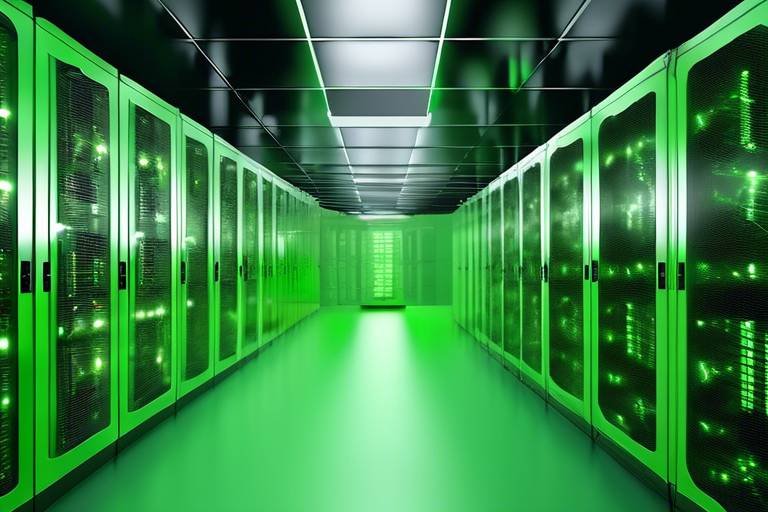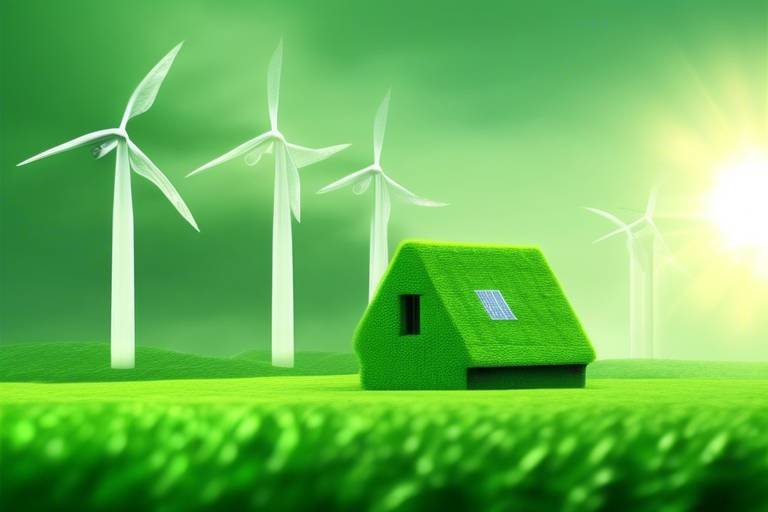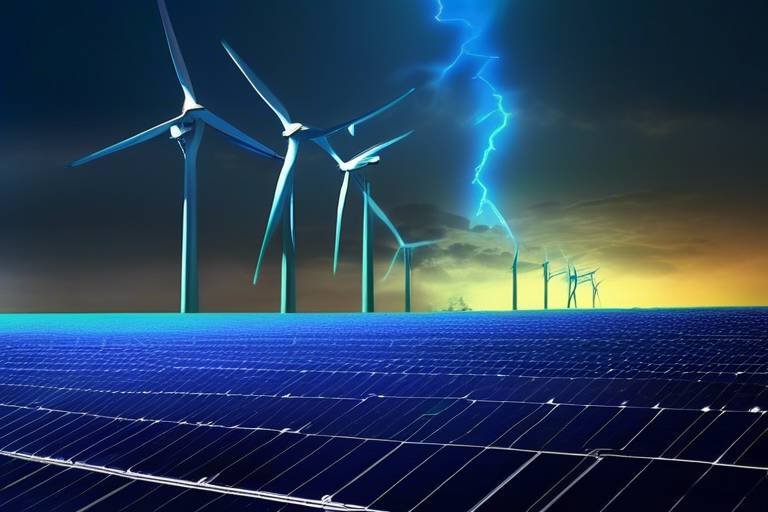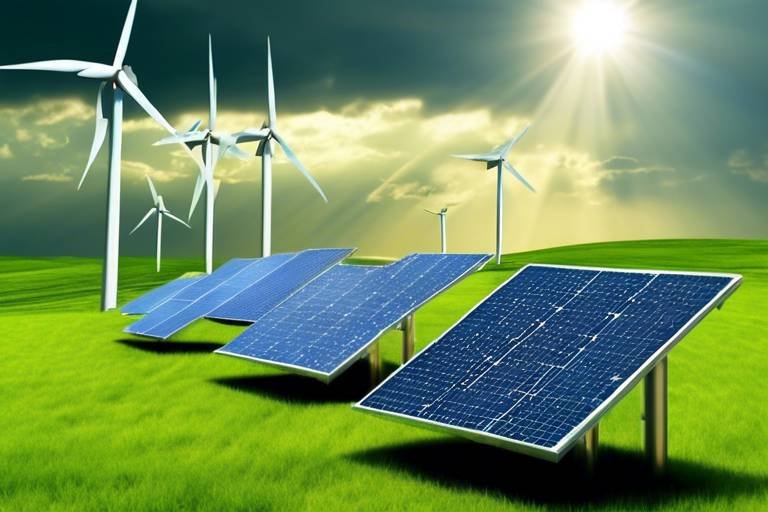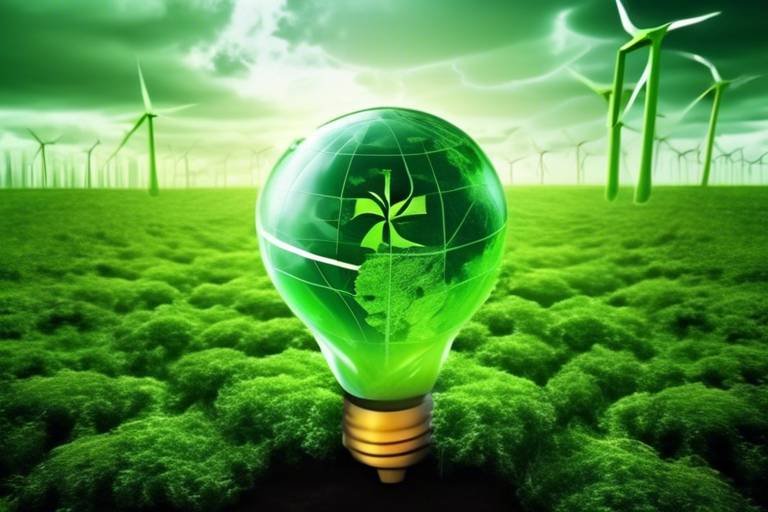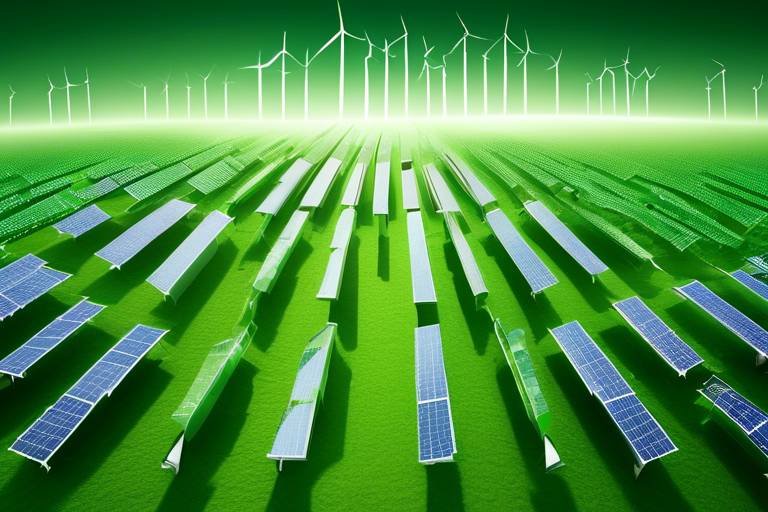Why your Small Business Should Consider Green Energy
In today’s fast-paced world, where environmental concerns are at the forefront of global discussions, small businesses face a unique opportunity to not only thrive but also contribute positively to the planet. Imagine walking into your office, knowing that your operations are not only efficient but also eco-friendly. This is where green energy comes into play. By adopting renewable energy sources, small businesses can enjoy numerous benefits that extend beyond just cost savings. From enhancing brand image to achieving energy independence, the reasons to consider green energy are compelling and numerous.
As a small business owner, you might wonder, “Is it really worth the investment?” The answer is a resounding yes! Transitioning to green energy solutions can lead to significant long-term savings, improved customer loyalty, and a more sustainable operational model. Think of it as planting a tree: with time, care, and the right environment, it can grow into something that provides shade, beauty, and even fruit. In the same way, your business can flourish by embracing eco-friendly practices.
Moreover, with increasing regulations surrounding environmental sustainability, businesses that proactively adopt green energy solutions position themselves as leaders in their industries. By taking this step, you not only comply with regulations but also set a standard for others to follow. In essence, choosing green energy is not just about being responsible; it’s about being smart and strategic in your business approach.
So, are you ready to explore the possibilities? Let’s dive deeper into the specific benefits of green energy for small businesses and uncover how this transition can be a game-changer for your operations.
Green energy refers to energy derived from renewable sources that have a minimal impact on the environment. This encompasses a variety of sources, including solar, wind, hydroelectric, and geothermal energy. For small businesses, understanding what green energy entails is crucial. It’s not just about using less energy; it’s about using energy that is sustainable and renewable.
Implementing green energy solutions can lead to significant cost savings. By investing in energy-efficient systems and renewable energy sources, businesses can drastically lower their energy bills. Additionally, many governments offer incentives and rebates that can offset the initial costs of switching to green energy. This means that not only do you save money, but you can also take advantage of programs designed to help you make the transition.
Adopting green energy not only benefits businesses financially but also contributes positively to the environment. By reducing reliance on fossil fuels, businesses can significantly lower their greenhouse gas emissions, which is crucial for combating climate change. This commitment to sustainability resonates with customers, who increasingly prefer to support businesses that prioritize the environment.
Green energy can help small businesses achieve energy independence. By utilizing renewable sources such as solar panels or wind turbines, businesses can reduce their reliance on traditional energy suppliers. This not only protects businesses from fluctuating energy prices but also promotes a sense of self-sufficiency that can be empowering.
Utilizing green energy can enhance a business's brand image. In an age where consumers are more environmentally conscious than ever, businesses that adopt eco-friendly practices attract customers who value sustainability. This can lead to increased loyalty and sales, as customers are more likely to support brands that align with their values.
As environmental regulations become stricter, businesses must comply to avoid penalties. Adopting green energy can help small businesses meet these regulatory requirements and avoid legal issues. Being proactive about sustainability not only protects your business but also showcases your commitment to responsible practices.
The green energy sector is rapidly evolving with new technologies. From advanced solar panels to energy-efficient appliances, small businesses can leverage these innovations to improve their operations. Staying informed about the latest developments in green technology can give your business a competitive edge.
Understanding future trends in green energy can help small businesses stay ahead. As the market shifts towards more sustainable practices, being an early adopter of green energy solutions can position your business as a leader in your industry. Keep an eye on emerging technologies and market demands to ensure you’re not left behind.
- What is green energy? Green energy refers to renewable energy sources that are environmentally friendly.
- How can my business save money with green energy? By implementing energy-efficient solutions and taking advantage of government incentives, businesses can significantly lower their energy costs.
- Will adopting green energy improve my brand image? Yes! Consumers are increasingly favoring businesses that prioritize sustainability, leading to enhanced loyalty and sales.
- Are there any risks associated with switching to green energy? While there may be initial costs, the long-term benefits often outweigh these risks, especially with available incentives.
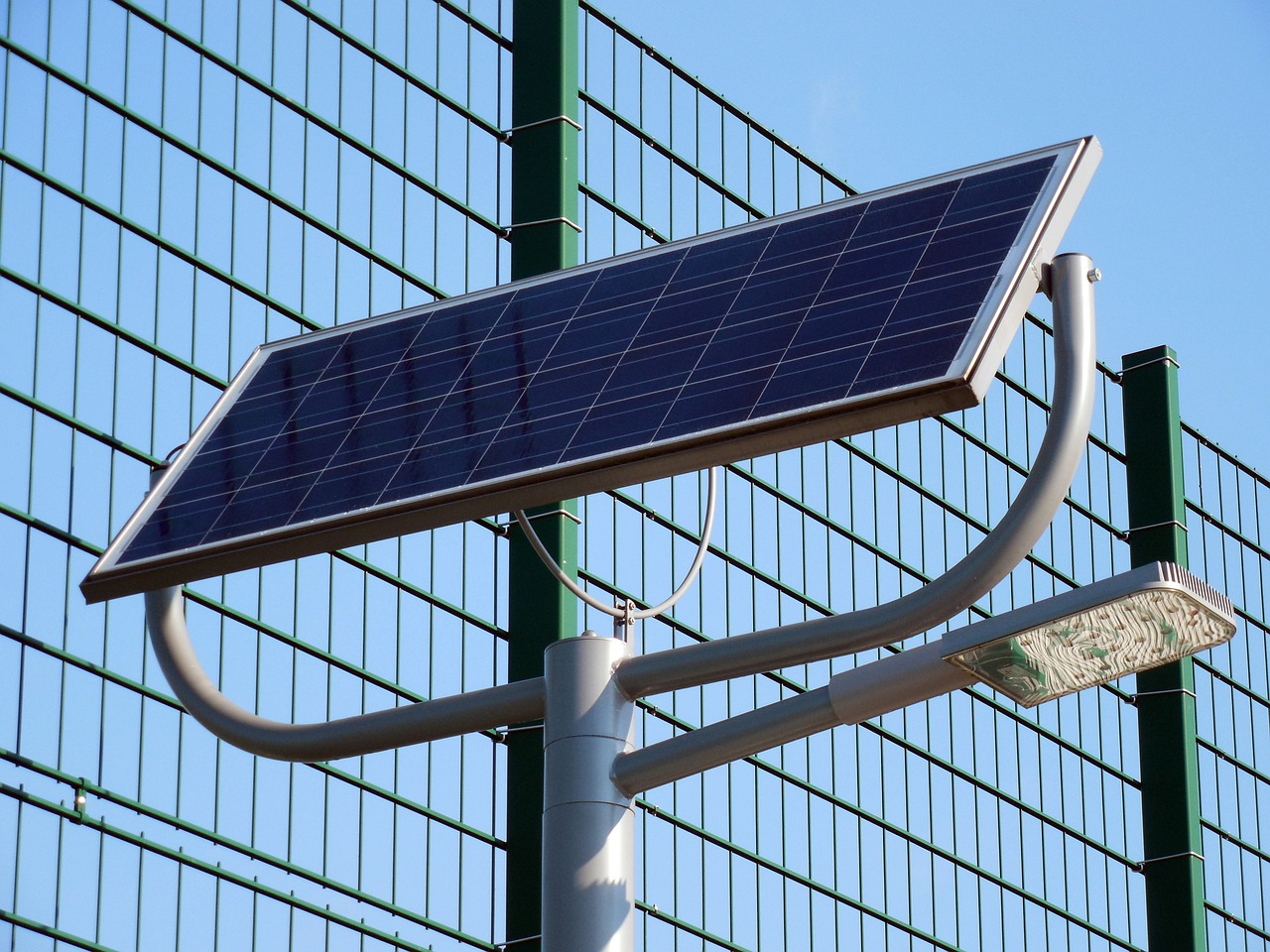
Understanding Green Energy
Green energy refers to energy derived from natural, renewable sources that are replenished over time, making them a sustainable option for powering our homes and businesses. Unlike traditional fossil fuels, which can take millions of years to form and are finite, green energy comes from sources like the sun, wind, water, and geothermal heat. This shift towards renewable energy is not just a trend; it’s a necessary evolution in how we produce and consume energy, especially for small businesses looking to make a positive impact on the environment.
For small businesses, understanding green energy is crucial for several reasons. Firstly, it allows them to reduce their carbon footprint, which is a significant step towards combating climate change. By adopting renewable energy solutions, businesses can minimize their reliance on fossil fuels, which are major contributors to greenhouse gas emissions. Imagine the difference it could make if your business were powered by the sun instead of coal! Not only does this contribute to a healthier planet, but it also aligns with the growing consumer demand for environmentally responsible practices.
So, what exactly constitutes green energy? Here are some of the most common sources:
- Solar Energy: Harnessed from sunlight using solar panels, this energy source is becoming increasingly popular due to decreasing costs and technological advancements.
- Wind Energy: Generated by wind turbines, this form of energy is particularly effective in areas with consistent wind patterns.
- Hydropower: Utilizing flowing water, this renewable source is one of the oldest forms of energy generation.
- Geothermal Energy: This energy is derived from the heat stored beneath the Earth's surface, providing a stable and reliable energy source.
Understanding these sources is just the beginning. Small businesses can leverage green energy not only to save money but also to enhance their brand image. Consumers are increasingly drawn to companies that prioritize sustainability, and by adopting green energy, businesses can showcase their commitment to the environment. This not only attracts eco-conscious customers but also fosters a sense of community and trust.
Moreover, the significance of green energy extends beyond just the business itself. It contributes to a larger movement towards sustainability and environmental stewardship. By choosing green energy, small businesses are not just making a choice for themselves; they are participating in a global effort to create a cleaner, healthier planet for future generations.
In conclusion, understanding green energy is essential for small businesses that want to thrive in today's environmentally conscious market. By embracing renewable energy sources, businesses can not only reduce their impact on the planet but also enjoy financial benefits and a stronger brand image. The future is green, and it's time for small businesses to get on board!
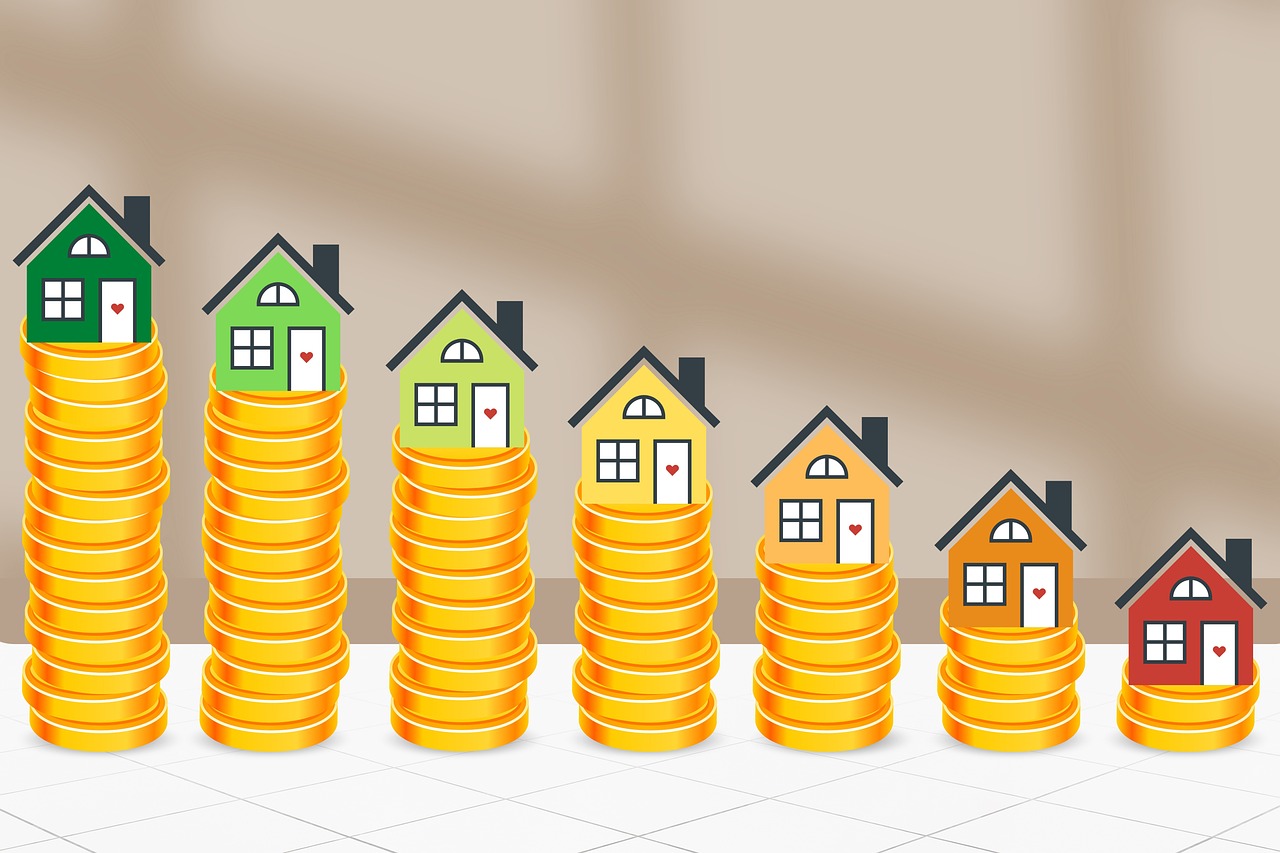
Cost Savings Through Green Energy
When it comes to running a small business, every penny counts. That's why cost savings through green energy is such an enticing prospect for entrepreneurs. Imagine slashing your energy bills significantly while doing your part for the planet—sounds like a win-win, right? By embracing renewable energy sources like solar, wind, and geothermal, small businesses can not only save money but also create a more sustainable future.
One of the most compelling reasons to shift to green energy is the potential for substantial cost reductions. For instance, businesses that invest in solar panels can see a dramatic decrease in their electricity bills. The initial investment might seem daunting, but consider this: many businesses report a return on investment (ROI) within just a few years. Plus, with the advent of various government incentives and rebates, the financial burden is often eased. Here’s a quick breakdown of how these savings can manifest:
| Energy Source | Initial Investment | Annual Savings | Payback Period |
|---|---|---|---|
| Solar Panels | $15,000 | $2,000 | 7.5 years |
| Wind Turbines | $30,000 | $4,500 | 6.7 years |
| Geothermal Heating | $20,000 | $3,000 | 6.7 years |
As you can see from the table, while the upfront costs of green energy technologies can be significant, the long-term savings are undeniable. Additionally, many states offer tax credits that can offset these initial costs, making it even more appealing. But wait, there’s more! By reducing your energy consumption, you also lower your carbon footprint, which can lead to further savings by enhancing your brand’s reputation and attracting eco-conscious customers.
Another aspect to consider is the stability that comes with adopting green energy solutions. Traditional energy prices can fluctuate wildly due to various factors, including geopolitical tensions and market demand. By investing in renewable energy, small businesses can shield themselves from these unpredictable costs. Imagine having a consistent energy bill that allows you to better budget for other essential business expenses! This stability is crucial for small businesses striving for growth and sustainability.
In conclusion, the financial benefits of switching to green energy are substantial and multifaceted. From significant reductions in energy bills to government incentives and the promise of long-term savings, the argument for going green is compelling. If you’re still on the fence about making the switch, consider how much you could save while also contributing positively to the environment. After all, in the world of business, saving money is always in style!
- What are the main benefits of switching to green energy? The main benefits include cost savings, reduced environmental impact, and increased energy independence.
- How long does it take to see savings after switching? Many businesses report seeing a return on investment within a few years, depending on the energy source and initial costs.
- Are there government incentives for switching to green energy? Yes, many states offer tax credits, rebates, and other incentives to encourage businesses to adopt renewable energy solutions.
- Can green energy solutions help with energy price stability? Absolutely! By generating your own energy, you can protect your business from fluctuating energy prices.
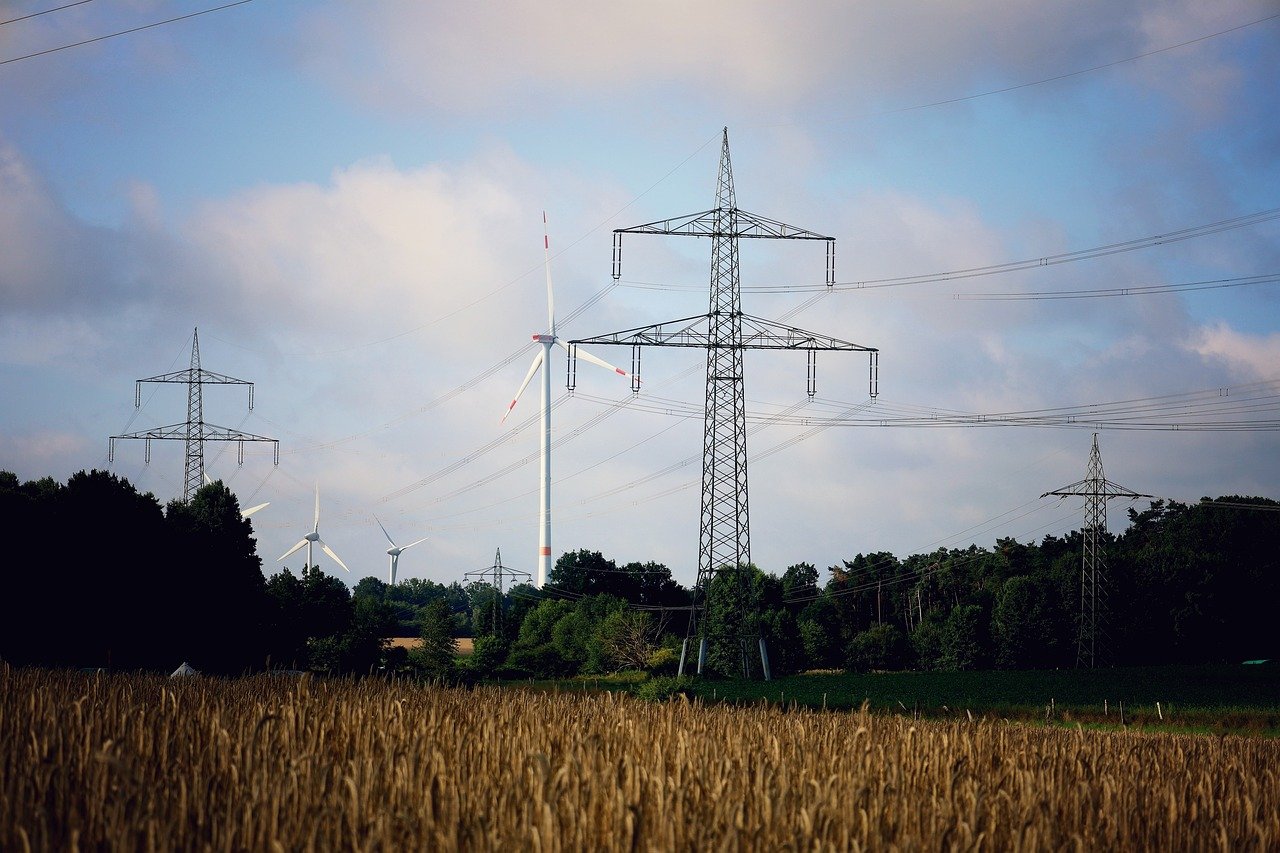
Environmental Benefits
Adopting green energy solutions is not just a trend; it’s a necessity for the planet and a smart move for small businesses. By making the switch to renewable energy sources like solar, wind, and hydro, businesses can significantly reduce their carbon footprint. This reduction is crucial in combating climate change, which poses a threat not only to the environment but also to the economy and public health. Imagine a world where the air is cleaner, the water is purer, and the overall quality of life is enhanced—this is the vision that green energy helps to realize.
One of the most compelling environmental benefits of green energy is the reduction of greenhouse gas emissions. Traditional energy sources, such as coal and natural gas, release a plethora of harmful emissions into the atmosphere. In contrast, renewable energy sources produce little to no emissions during operation. For instance, while coal-fired power plants emit around 2.2 pounds of CO2 per kilowatt-hour of electricity produced, solar panels generate electricity without producing any harmful emissions. This stark difference highlights the potential for small businesses to contribute to a cleaner environment.
Moreover, transitioning to green energy not only mitigates pollution but also promotes sustainability. By utilizing resources that are naturally replenished, such as sunlight and wind, businesses can operate in a way that preserves the planet for future generations. This is akin to planting a tree today that will provide shade and fruit for years to come. The more businesses that adopt sustainable practices, the greater the collective impact on the environment.
Another exciting aspect of green energy is its role in biodiversity preservation. When businesses choose renewable energy, they often contribute to less habitat destruction compared to fossil fuel extraction methods. For example, wind and solar farms can coexist with natural ecosystems, allowing wildlife to thrive while generating clean energy. This is a win-win situation where businesses can flourish while also being stewards of the Earth.
Additionally, adopting green energy can lead to improved public health. Traditional energy sources are linked to air and water pollution, which can cause respiratory problems, cardiovascular diseases, and other health issues. By switching to renewable energy, small businesses can help reduce these health risks for their employees and the community. It’s like choosing to eat organic food instead of processed junk; the benefits extend far beyond the individual to the broader community.
In conclusion, the environmental benefits of adopting green energy are profound and multifaceted. Not only does it help in reducing greenhouse gas emissions and promoting sustainability, but it also protects biodiversity and enhances public health. Small businesses have a unique opportunity to lead the charge towards a greener future, making a positive impact on the environment while reaping the rewards of eco-friendly practices.
- What is green energy? Green energy refers to energy produced from renewable sources that have a minimal impact on the environment, such as solar, wind, and hydroelectric power.
- How can green energy benefit my small business? By adopting green energy solutions, your business can reduce energy costs, enhance its brand image, and contribute positively to the environment.
- Are there any government incentives for switching to green energy? Yes, many governments offer incentives such as tax credits, rebates, and grants to encourage businesses to invest in renewable energy.
- Can green energy improve employee health? Absolutely! By reducing pollution and promoting cleaner air, green energy can lead to better health outcomes for employees and the surrounding community.

Energy Independence
When you think about energy independence, what comes to mind? For many small business owners, it might evoke images of solar panels soaking up the sun or wind turbines spinning gracefully in the breeze. But in reality, energy independence is about so much more than just harnessing the power of nature; it’s about empowering your business to take control of its energy consumption and costs. In today’s world, where energy prices can fluctuate dramatically, relying on traditional fossil fuels can feel like sailing on a turbulent sea. However, by adopting green energy solutions, small businesses can chart a course toward stability and sustainability.
Imagine waking up one morning to find your energy bills slashed in half. Sounds like a dream, right? But with renewable energy sources such as solar or wind, this can be a reality. By generating your own energy, you reduce your dependence on the grid and the unpredictable nature of fossil fuel prices. This is particularly beneficial for small businesses that often operate on tight budgets. The less you spend on energy, the more you can invest in growing your business.
Moreover, energy independence allows businesses to become more resilient against power outages and energy shortages. In a world where natural disasters and climate change are increasingly common, having your own energy source can be a game-changer. For example, during a storm, while the lights go out in neighboring businesses, yours could still be shining bright thanks to your solar panels. This resilience not only protects your bottom line but also enhances your reputation as a reliable service provider.
Additionally, embracing green energy can lead to innovative partnerships. Many small businesses are now collaborating with local renewable energy providers to create community solar projects. These initiatives not only foster a sense of community but also allow businesses to share resources, further reducing costs and enhancing energy security. Think of it as a local power network where everyone benefits from the sun’s rays or the wind’s gusts.
However, you might wonder about the initial investment required to transition to renewable energy. While it's true that the upfront costs can be daunting, several government incentives and rebates are available to ease the financial burden. Furthermore, the long-term savings on energy bills and the potential for increased business resilience often outweigh these initial costs. To illustrate this, consider the following table that highlights the potential savings over time when investing in solar energy:
| Year | Initial Investment | Annual Savings | Cumulative Savings |
|---|---|---|---|
| 1 | $15,000 | $2,000 | $2,000 |
| 2 | $0 | $2,000 | $4,000 |
| 3 | $0 | $2,000 | $6,000 |
| 4 | $0 | $2,000 | $8,000 |
| 5 | $0 | $2,000 | $10,000 |
As you can see, within just a few years, the investment in solar energy can start to pay off significantly. This financial freedom can be reinvested into your business, allowing you to expand, hire more employees, or even give back to the community.
In conclusion, energy independence is not just a buzzword; it's a strategic move that can propel your small business into a more sustainable and resilient future. By embracing green energy solutions, you can safeguard your business against rising energy costs, enhance your operational resilience, and contribute positively to the environment. So why not take the leap? The future of your business—and the planet—might just depend on it.
- What is energy independence? Energy independence refers to the ability of a business to generate its own energy, reducing reliance on external sources and fossil fuels.
- How can small businesses achieve energy independence? Small businesses can achieve energy independence by investing in renewable energy sources like solar panels, wind turbines, or community energy projects.
- Are there financial incentives for adopting green energy? Yes, many governments offer incentives, rebates, and tax credits to encourage businesses to invest in renewable energy solutions.
- What are the long-term benefits of green energy? Long-term benefits include reduced energy costs, increased resilience against energy shortages, and a positive impact on the environment.

Enhancing Brand Image
In today's competitive market, brand image is everything. It's not just about selling products or services; it's about creating a connection with your customers. When a small business embraces green energy, it sends a powerful message to the world: "We care." This commitment to sustainability can significantly enhance your brand image, making it more appealing to a growing demographic of eco-conscious consumers.
Think about it: when you see a business that actively promotes environmentally friendly practices, doesn’t it make you feel good? You’re not just buying a product; you’re supporting a cause. Consumers today are increasingly making purchasing decisions based on a company's environmental impact. In fact, studies show that over 70% of consumers prefer to buy from brands that are committed to sustainability. By adopting green energy solutions, your business can tap into this lucrative market.
But how exactly does going green enhance your brand image? Here are a few key points:
- Attracting New Customers: Eco-friendly practices can attract new customers who prioritize sustainability in their buying choices.
- Building Customer Loyalty: Customers are more likely to remain loyal to brands that align with their values, leading to repeat business.
- Positive Public Relations: Companies that adopt green initiatives often receive favorable media coverage, further enhancing their public image.
Moreover, being recognized as a green business can open doors to partnerships and collaborations with other eco-conscious brands. This not only broadens your network but also strengthens your market position. Consider how many businesses are now looking to partner with others that share similar values. When your brand stands out as an environmentally responsible entity, you can leverage that reputation to form beneficial alliances.
It's also essential to communicate your green initiatives effectively. Use your website, social media, and marketing materials to highlight your commitment to green energy. Share stories about your journey towards sustainability, the steps you're taking, and the positive impacts you're making. Transparency is key; customers appreciate honesty and are more likely to support brands that openly share their sustainability efforts.
In conclusion, enhancing your brand image through green energy is not just a trend; it's a strategic business move. As more consumers prioritize sustainability, positioning your small business as a leader in eco-friendly practices can lead to increased customer loyalty, a stronger market presence, and ultimately, a more successful business. So, why not take the plunge? Embrace green energy and watch your brand image flourish!
Q1: How can adopting green energy enhance my brand image?
A1: By adopting green energy, your business showcases its commitment to sustainability, attracting eco-conscious consumers and building customer loyalty.
Q2: What are some effective ways to communicate my green initiatives?
A2: Utilize your website, social media platforms, and marketing materials to share your sustainability journey, the steps you're taking, and the positive impacts you're making.
Q3: Can going green really impact my sales?
A3: Yes! Many consumers prefer to buy from brands that prioritize sustainability, which can lead to increased sales and customer loyalty.

Regulatory Compliance
In today's world, navigating the labyrinth of environmental regulations can feel like a daunting task for small business owners. However, embracing green energy solutions not only simplifies compliance but also positions your business as a forward-thinking entity in a rapidly evolving marketplace. With governments worldwide tightening regulations to combat climate change, it's crucial for businesses to stay ahead of the curve. But what does this mean for small businesses specifically?
First and foremost, adopting green energy practices can significantly aid in meeting regulatory requirements. Many countries have set ambitious targets for reducing greenhouse gas emissions, and small businesses are often under pressure to contribute to these goals. By switching to renewable energy sources such as solar, wind, or biomass, your business can reduce its carbon footprint and align itself with governmental objectives. This not only helps in avoiding potential fines but also opens up pathways for government incentives and grants aimed at promoting sustainability.
Moreover, regulatory compliance is not just about avoiding penalties; it's about embracing a culture of responsibility. When small businesses adopt eco-friendly practices, they are not only complying with the law but also demonstrating their commitment to the community and the environment. This can enhance your brand reputation, making you more appealing to environmentally conscious consumers.
Here’s a quick overview of how green energy can help with regulatory compliance:
| Green Energy Source | Compliance Benefits |
|---|---|
| Solar Power | Reduces reliance on fossil fuels, lowers emissions, and can qualify for tax credits. |
| Wind Energy | Contributes to renewable energy standards and can help meet local energy mandates. |
| Biomass Energy | Helps in waste management and reduces landfill contributions, aligning with waste reduction policies. |
Additionally, staying compliant with regulations can also shield your business from potential legal issues. As the landscape of environmental laws continues to evolve, businesses that proactively adopt green energy solutions are less likely to face unexpected legal challenges. This proactive approach not only secures your operations but also provides peace of mind, allowing you to focus on what you do best—growing your business.
In summary, regulatory compliance is not merely a checkbox for small businesses; it's an opportunity to lead by example. By adopting green energy solutions, you can ensure that your business not only meets current regulations but is also prepared for future changes. This strategic move not only protects your business but also contributes to a healthier planet, making it a win-win situation. So, why wait? Start your journey towards sustainability today!
- What are the main benefits of adopting green energy for small businesses?
Adopting green energy can lead to significant cost savings, enhance brand image, ensure regulatory compliance, and contribute positively to the environment.
- How can green energy help with regulatory compliance?
By utilizing renewable energy sources, businesses can reduce their carbon footprint and align with government regulations aimed at reducing greenhouse gas emissions.
- What types of green energy solutions are available for small businesses?
Small businesses can consider solar panels, wind energy, biomass energy, and energy-efficient appliances as viable green energy solutions.
- Are there financial incentives for small businesses to adopt green energy?
Yes, many governments offer tax credits, grants, and rebates to encourage the adoption of renewable energy sources.
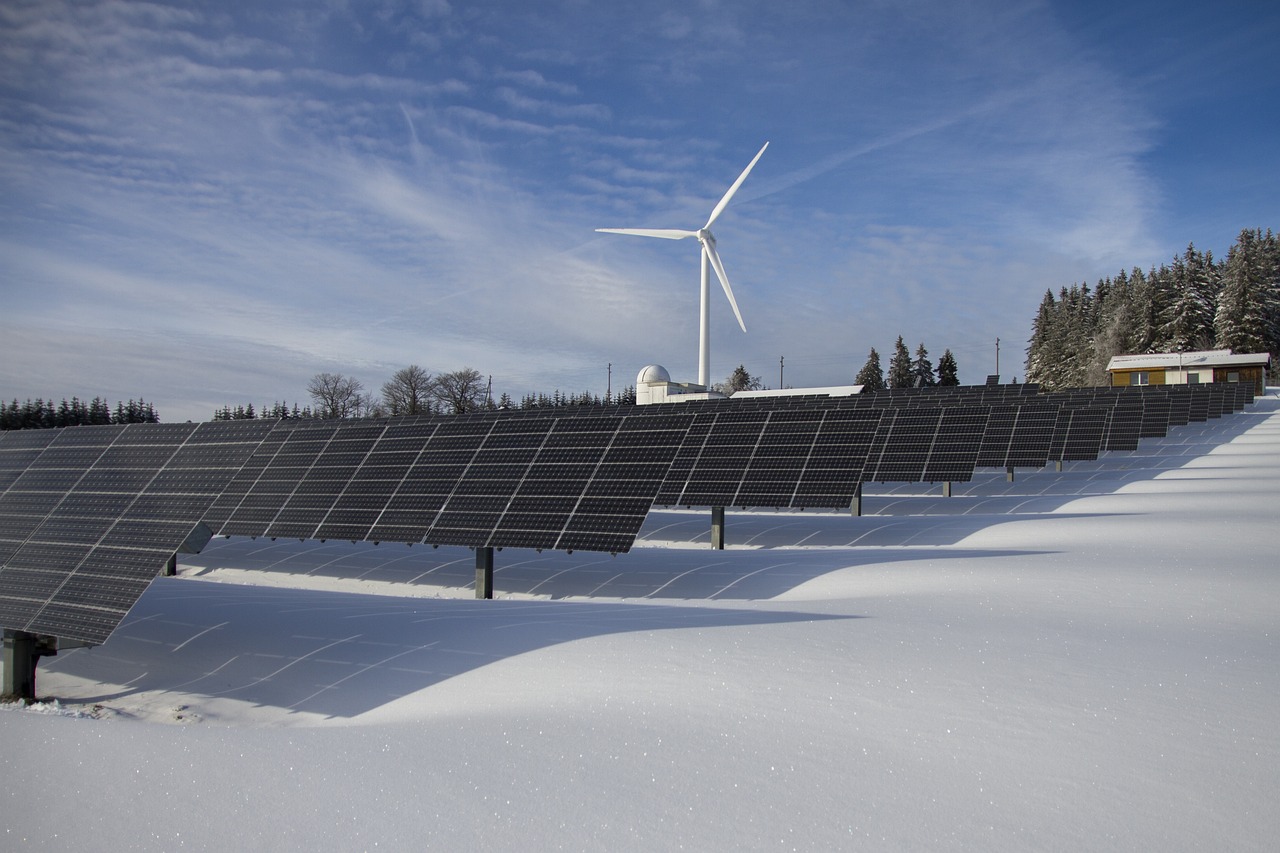
Technological Innovations
In today's fast-paced world, in the green energy sector are not just exciting; they are essential for small businesses looking to thrive sustainably. Imagine harnessing the power of the sun or the wind to not only light up your office but also to drive down costs and enhance your brand's eco-friendly image. The advancements in renewable energy technologies have made it easier than ever for small businesses to adopt these solutions and reap the benefits.
One of the most significant innovations is the development of solar panels. Modern solar panels are more efficient and affordable than ever before. With advancements in photovoltaic technology, businesses can now convert sunlight into electricity with minimal space and maximum efficiency. The integration of solar energy systems can significantly reduce a business's dependence on traditional energy sources, leading to lower electricity bills and a smaller carbon footprint.
Another groundbreaking innovation is the rise of energy storage systems. These systems, like advanced batteries, allow businesses to store excess energy generated during peak sunlight hours for use during the night or cloudy days. This capability not only ensures a steady power supply but also maximizes the use of renewable energy, enhancing overall efficiency. Imagine a bakery that uses solar power during the day and stores the excess energy to keep its ovens running at night without incurring high energy costs!
Additionally, smart grid technology is revolutionizing how energy is distributed and consumed. This technology enables businesses to monitor and manage their energy usage in real-time, allowing for adjustments that can lead to significant savings. For instance, a small retail store can optimize its energy consumption by adjusting lighting and heating based on customer traffic patterns, thus reducing waste and costs.
Furthermore, energy-efficient appliances are becoming increasingly sophisticated. From LED lighting to high-efficiency HVAC systems, these appliances consume less energy while providing the same level of service. By upgrading to energy-efficient models, small businesses can not only cut down on their energy expenses but also contribute to a more sustainable future.
In conclusion, as technology continues to evolve, small businesses have access to a plethora of innovations that can help them adopt green energy solutions. The transition to renewable energy is no longer a daunting task but an exciting opportunity to enhance operational efficiency, reduce costs, and contribute positively to the environment. The question isn’t whether you should consider these technologies; it’s how soon you can implement them into your business strategy.
- What are the main benefits of adopting green energy technologies?
Adopting green energy technologies can lead to significant cost savings, improve brand image, and reduce environmental impact. - How can solar panels benefit my small business?
Solar panels can drastically reduce your energy bills and provide a sustainable energy source, which can enhance your business's eco-friendly reputation. - What is energy storage and why is it important?
Energy storage systems allow businesses to store excess energy for later use, ensuring a steady power supply and maximizing renewable energy use. - Are energy-efficient appliances worth the investment?
Yes, while they may have a higher upfront cost, energy-efficient appliances can save money in the long run through reduced energy consumption.

Future Trends in Green Energy
This article explores the benefits of adopting green energy solutions for small businesses, highlighting cost savings, environmental impact, and long-term sustainability, ultimately encouraging business owners to embrace eco-friendly practices.
Green energy refers to renewable energy sources that are environmentally friendly. This section will clarify what constitutes green energy and its significance for small businesses looking to reduce their carbon footprint.
Implementing green energy solutions can lead to significant cost savings. Here, we will discuss how businesses can lower energy bills while taking advantage of government incentives and rebates.
Adopting green energy not only benefits businesses financially but also contributes positively to the environment. This section will cover the reduction of greenhouse gas emissions and the promotion of sustainability.
Green energy can help small businesses achieve energy independence. We will explore how renewable energy sources can reduce reliance on fossil fuels and protect businesses from fluctuating energy prices.
Utilizing green energy can enhance a business's brand image. This section will discuss how eco-friendly practices attract customers and improve public perception, ultimately leading to increased loyalty and sales.
As environmental regulations become stricter, businesses must comply to avoid penalties. This section will outline how adopting green energy can help small businesses meet regulatory requirements and avoid legal issues.
The green energy sector is rapidly evolving with new technologies. Here, we will highlight some of the latest innovations that can benefit small businesses, including solar panels and energy-efficient appliances.
As we look ahead, the landscape of green energy is set to transform dramatically. Small businesses that stay informed about these trends can position themselves advantageously in the market. One of the most exciting developments is the rise of decentralized energy systems. These systems allow businesses to generate their own energy, reducing reliance on traditional energy grids. Imagine a small café powering itself with solar panels while also selling excess energy back to the grid! This not only cuts costs but fosters a sense of community and sustainability.
Another trend to watch is the growing emphasis on energy storage technologies. As battery technology advances, storing energy generated from renewable sources becomes more feasible. This means that businesses can harness solar energy during the day and use it at night, ensuring a continuous energy supply without the need for fossil fuels. It’s like having a savings account for energy!
Moreover, smart technology is becoming increasingly integrated into energy systems. From smart meters that provide real-time energy usage data to AI-driven energy management systems, these innovations allow businesses to optimize their energy consumption. Imagine being able to adjust your energy use based on peak pricing times, saving money while being eco-friendly!
Finally, as public awareness of climate change grows, there’s a palpable shift toward corporate social responsibility. Consumers are more inclined to support businesses that prioritize sustainability. This trend is not just about compliance; it’s about creating a brand that resonates with values that customers care about. The future is bright for those who embrace green energy, as they can tap into a growing market of eco-conscious consumers.
- What is green energy? Green energy refers to renewable energy sources that are environmentally friendly and sustainable.
- How can small businesses save money with green energy? By implementing green energy solutions, businesses can lower their energy bills and take advantage of government incentives and rebates.
- What are the environmental benefits of green energy? Green energy helps reduce greenhouse gas emissions and promotes sustainability, positively impacting the environment.
- How can adopting green energy enhance my brand image? Eco-friendly practices attract customers and improve public perception, leading to increased loyalty and sales.
- What future trends should small businesses be aware of in green energy? Key trends include decentralized energy systems, advancements in energy storage technologies, smart technology integration, and a growing emphasis on corporate social responsibility.
Frequently Asked Questions
- What is green energy?
Green energy refers to renewable energy sources that are environmentally friendly. This includes solar, wind, hydro, and geothermal energy, which help reduce our carbon footprint and promote sustainability.
- How can adopting green energy save my small business money?
By implementing green energy solutions, small businesses can significantly lower their energy bills. Additionally, there are often government incentives and rebates available that can further reduce costs associated with transitioning to renewable energy sources.
- What are the environmental benefits of using green energy?
Adopting green energy helps reduce greenhouse gas emissions, which is crucial for combating climate change. It also promotes sustainability by using resources that are naturally replenished, leading to a healthier planet for future generations.
- Can green energy help my business achieve energy independence?
Absolutely! By utilizing renewable energy sources, your small business can reduce its reliance on fossil fuels. This not only shields you from fluctuating energy prices but also enhances your energy security.
- How does using green energy enhance my brand image?
Incorporating green energy practices can significantly boost your brand image. Consumers are increasingly drawn to businesses that prioritize sustainability, which can lead to increased customer loyalty and sales.
- Will adopting green energy help me comply with regulations?
Yes, as environmental regulations become stricter, adopting green energy can help your business stay compliant. This proactive approach can prevent potential legal issues and penalties related to non-compliance.
- What technological innovations are available in green energy?
The green energy sector is rapidly evolving, with innovations such as advanced solar panels, energy-efficient appliances, and smart grids. These technologies can greatly benefit small businesses by improving energy efficiency and decreasing costs.
- What future trends should I be aware of in green energy?
Staying informed about future trends in green energy is essential for small businesses. Emerging technologies, shifts in market demand, and evolving regulations can all impact the adoption of green energy solutions, making it crucial to keep an eye on these developments.



